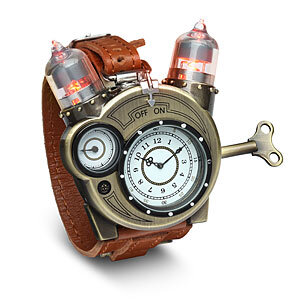To put it as simply as possible its a mathematics function.
The more parts that interact, the more complex thus
This Watch
Is more complex a mechanism than the machine below
A
complex system is a system composed of many components which may interact with each other. In many cases it is useful to represent such a system as a network where the nodes represent the components and the links their interactions.
The more components the more complex.
In IIT the more information in the system, the more complex that system is
This article presents an updated account of integrated information theory of consciousness (IIT) and some of its
implications. IIT stems from thought experiments that lead to phenomenological axioms (existence, compositional-
ity, information, integration, exclusion) and corresponding ontological postulates. The information axiom asserts
that every experience is specific – it is what it is by differing in its particular way from a large repertoire of
alternatives. The integration axiom asserts that each experience is unified – it cannot be reduced to independent
components. The exclusion axiom asserts that every experience is definite – it is limited to particular things and
not others and flows at a particular speed and resolution. IIT formalizes these intuitions with postulates. The infor-
mation postulate states that only “differences that make a difference” from the intrinsic perspective of a system
matter: a mechanism generates cause-effect information if its present state has selective past causes and selective
future effects within a system. The integration postulate states that only information that is irreducible matters:
mechanisms generate integrated information only to the extent that the information they generate cannot be par-
titioned into that generated within independent components. The exclusion postulate states that only maxima of
integrated information matter: a mechanism specifies only one maximally irreducible set of past causes and future
effects – a concept. A complex is a set of elements specifying a maximally irreducible constellation of concepts,
where the maximum is evaluated over elements and at the optimal spatio-temporal scale. Its concepts specify a
maximally integrated conceptual information structure or quale, which is identical with an experience. Finally,
changes in information integration upon exposure to the environment reflect a system’s ability to match the causal
structure of the world. After introducing an updated definition of information integration and related quantities,
the article presents some theoretical considerations about the relationship between information and causation and
about the relational structure of concepts within a quale. It also explores the relationship between the temporal
grain size of information integration and the dynamic of metastable states in the corticothalamic complex. Finally,
it summarizes how IIT accounts for empirical findings about the neural substrate of consciousness, and how vari-
ous aspects of phenomenology may in principle be addressed in terms of the geometry of information integration.
http://www.architalbiol.org/aib/article/viewFile/15056/23165867




